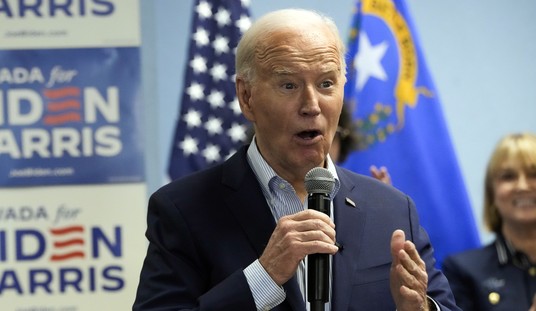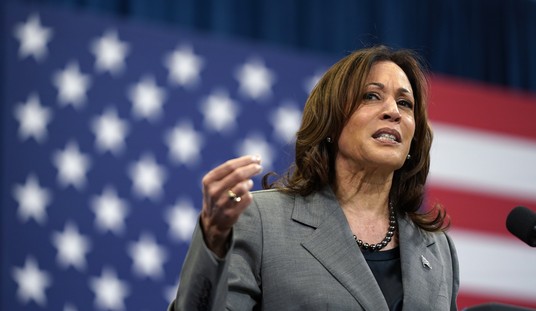If you followed the Senate hearing featuring James Comey at all the one thing that was obvious was that the original reason for the appointment of an independent counsel–i.e. Russian meddling in the 2016 election to assist Donald Trump and actions by members of his campaign to encourage and aid that meddling–is no longer operative. The issue now is “obstruction.”
I am not a lawyer. And unlike the clear majority of people who are claiming this is a slam dunk case of obstruction, I don’t even play one on the internet. But I will go out on a limb and make this prediction. If the sum total of Donald Trump’s “obstruction” of the alleged Russia probe (disclosure: I don’t think there is anything going on in regards to investigating Trump campaign ties to Russia that has to do with manipulating the election, I think the focus is clearly fraud and money laundering) is contained in what James Comey disclosed, this will be the Royale with Cheese of nothingburgers.
Why?
Jonathan Turley: James Comey’s testimony doesn’t make the case for impeachment or obstruction against Donald Trump.
The crime of obstruction of justice has not been defined as broadly as suggested by commentators. While there are a couple of courts with more expansive interpretations, the crime is generally linked to obstructing a pending proceeding as opposed to an investigation. Most courts have rejected the application of obstruction provisions to mere investigations. The manual used by federal prosecutors makes that same distinction. Even if a prosecutor was able to extend the definition of obstruction, there would remain the need to show that Trump sought to “corruptly” influence the investigation. Trump telling Comey that Michael Flynn is “a good guy,” and that he hoped Comey would let the matter drop is hardly a “cancer,” let alone a crime, growing on the presidency.
…
Ironically, those who want a criminal charge on this record are committing the very offense that they accuse Trump of committing: disregarding the law to achieve their desired goal. It would be a highly dangerous interpretation to allow obstruction charges at this stage. If prosecutors can charge people at the investigation stage of cases, a wide array of comments or conduct could be criminalized. It is quite common to have such issues arise early in criminal cases. Courts have limited the crime precisely to avoid this type of open-ended crime where prosecutors could threaten potential witnesses with charges unless they cooperated.We do not indict or impeach people for being boorish or clueless … or simply being Donald Trump.
Andy McCarthy: Again, Pressure Is Not Obstruction.
Much of the commentariat assumes that any interference in an investigation equals obstruction. It is simply not true. Criminal statutes do not contain idle words. The word “corruptly” states an essential element of the crime. It is the core of the mental state that prosecutors must prove beyond a reasonable doubt to establish an obstruction offense. This is a technical legal fact; it is not cavalier rhetoric — a word thrown around by a fired-up commentator in a media interview or a partisan lawmaker in a red-hot congressional debate.
As you can see, aside from acting “corruptly,” there are basically two other ways that the crime of obstructing the administration of law can be committed: by a threat or by use of force. Rather than blow by them with ellipses, I left them in the excerpt above so people would not wonder what I was omitting. But they clearly do not apply to our situation. Even on the most extravagant construction of President Trump’s February 14 plea to then-director Comey on Michael Flynn’s behalf — i.e., a vague, implied threat to fire Comey — no serious person is contending that Trump told Comey, in effect, “Do what I want, or else.”
…
Finally, it bears emphasizing that it is not the decision Trump made. He told Comey what he hoped would happen, and why. But he did not order Comey to halt the investigation. Plus, Comey did not halt the investigation; it is continuing to this day. Moreover, Comey acknowledges that Trump was speaking narrowly about Flynn. The president did not ask him to shut down the broader “Russia investigation” — meaning the president was not pretextually lobbying for Flynn in an attempt to make his own potential problems disappear.You can disagree with Trump’s reasoning. You can conclude that browbeating Comey in this fashion was inappropriate. But this clearly was not obstruction — which is no doubt why then-director Comey did not resign or otherwise treat the matter as if he’d just witnessed a crime.
Benjamin Wittes (a close Comey ally): Initial Comments on James Comey’s Written Testimony.
The pages of the testimony are laced, however, with examples of other inappropriate queries of the FBI director on investigative matters. There’s the conversation about General Michael Flynn; there is a subsequent inquiry on the Steele material; there are questions about when Comey was going to publicly state that Trump wasn’t personally under investigation.
It’s hard to express to people who are not steeped in federal law enforcement just how inappropriate these inquiries are, particularly when they involve an investigation in which the President has such deep and multifaceted personal stakes. No, they are not illegal. The President, after all, has constitutional authority to ask for whatever information he wants from his subordinates in the executive branch. But of course, the President also has the authority to give the State of the Union address in Latin and have it consist entirely of obscenities directed at the Speaker of the House. To people who know the norms of federal law enforcement, the conduct described here is closer to that end of the spectrum of presidential behavior than it is to the normal range.
Alan Dershowitz: Anderson Cooper
Well, first of all, let’s look at the big constitutional picture. The president could have told Comey, “You are commanded, directed to drop the prosecution against Flynn.” The president has the right to do that. Comey acknowledges that. He says in the statement that historically, historically presidents have done that to the Justice Department.
The past few years we’ve had a tradition of separation, but that tradition doesn’t create crime. And remember also what the president could have done. He could have said to Comey, “Stop this investigation. I am now pardoning Flynn.”
That’s what President Bush did. In the beginning of the investigation of Caspar Weinberger, which could have led back to the White House, to the first President Bush. President Bush on the eve of the trial pardoned Caspar Weinberger, pardoned six people, and special counsel Walsh said this is outrageous. He’s stopping the investigation. Nobody talked about obstruction of justice. You cannot have obstruction of justice, when the president exercises his constitutional authority to pardon, his constitutional authority to fire the director of the FBI or his constitutional authority to tell the director of the FBI who to prosecute, who not to prosecute. So let’s get out of the weeds, and let’s look at the big constitutional picture.
As always, there will be lawyers, real, imaginary, and alleged, who will disagree but when you have a group of lawyers with the diversity of politics that you find in Turley, McCarthy, Wittes, and Dershowitz all saying that rude and boorish is not criminal maybe, just maybe, you should listen.














Join the conversation as a VIP Member